New York Times
May 21, 2013
Trash Burning, With a Clean-Energy Twist
By CHRISTOPHER F. SCHUETZE
The Hague — After this newspaper has been read, it may be used to line a birdcage, recycled, burned, stuffed into a landfill or converted into something even more powerful than the press: electricity.
“There is a cleaner way of dealing with things that people cast away,” said Andy Harris, vice president of Waste to Energy Canada, which is based in Vancouver, British Columbia. “We shouldn’t see it as waste, we should see it as a source of energy.”
Nowhere more so than in the countries of Eastern and Central Europe. Still challenged by a legacy of environmental neglect inherited from the former Soviet Union, those that have joined the European Union now must conform to strict waste directives issued by the European Commission. Poland, like others in the region, has had to amend national laws to keep within environmentally friendly European guidelines. Fortunately, just when governments and the local authorities in Eastern Europe are looking for more environmentally friendly ways to handle their waste, new technology that produces energy while eliminating waste is increasingly available as a viable alternative to old-style dumping or burning.
The combination of changing laws, financial incentives and new technologies like “waste gasification” promises to open valuable business opportunities in the region’s waste processing markets. Poland, looking to modernize its waste infrastructure, is an example: Together with a local partner, Rank Progress, W.T.E.C. is scheduled to start construction of the first of three Polish energy-generating incineration plants this year. When the first plant is operational in Dlugoszyn, near Krakow in southern Poland, at the end of next year, it will be able to burn 120 tons of waste a day while delivering 7 megawatts of electricity to the grid. The plant’s planned processing capacity will eventually rise to 180 tons a day.
According to Alistair Haughton, W.T.E.C.’s chief operating officer, the company is a pioneer in Poland, where most waste is still dumped into landfills. “We are the first company with gasification technology,” in the Polish market, he said.
Differing from classical incinerators, waste-to-energy plants are sold as an efficient and environmentally sustainable way to eliminate waste by burning. “We gently cook the waste and then we burn the gas from that,” said Mr. Harris, the company’s vice president. Using a method called batch oxidation, the plant heats waste in large chambers before burning the gas emitted. The process efficiently extracts the energy contained in garbage while reducing pollution to a minimum, according to Mr. Haughton. “Rather than adding a catalytic converter to a car, we have a cleaner-burning engine,” said Mr. Harris, drawing an analogy with advances in auto emissions technology . Heat resulting from burning the gas can either be used directly — W.T.E.C. has built a plant in Iceland that feeds directly into a municipal heating plant, heating local housing for free — or it can be converted by transformers to generate power that can be fed into the grid.
“The emissions coming from those plants fulfill all legal regulations, that means that they are very effective and environmentally friendly,” said Joanna Wolkowska, the managing director of Rank Recycling Energy.
Although waste management directives have been in place at the European level since 2008, Poland, along with some other E.U. countries, has taken its time to write the laws into national legislation. Still, by July this year, Polish municipalities will no longer own their waste management facilities, a practice that encouraged the cheapest form of waste disposal: making landfills. The new laws, which include strict emission guidelines, are designed to make waste processing lucrative while introducing incentives for the installation of environmentally friendly processes.
The Dlugoszyn plant will cost an estimated 42 million Canadian dollars, or $41 million, to construct. W.T.E.C. and Rank Progress have signed a contract to run the plant for the first 10 years of operation, recouping their costs by charging surrounding communities a fee to eliminate their waste. In 2011, every person in Poland generated 315 kilograms, or 694 pounds, of waste, according to Eurostat, the European statistics bureau. Compared to richer countries like Denmark, Luxemburg and Switzerland — where residents produced more than double that amount — the country ranks favorably in the European bloc. However, when it comes to processing waste, Poland has lagged. In 2011 a full 71 percent went to landfills, with only 11 percent recycled, another 17 percent composted and only 1 percent incinerated. By way of comparison, Germany, the Netherlands and Sweden put only 1 percent into landfills, recycling 32 percent to 45 percent of their waste.
W.T.E.C., founded in 2009, designs, constructs and operates waste gasification plants around the world. They have 19 such projects in places like the Cayman Islands, Dumfries, Scotland, and Husavik, Iceland. The company also constructs mobile plants that are built in modules fitting into standard shipping containers and can be flown, trucked or shipped to remote locations around the world. The company is currently running those units in northern Canada. Besides the Dlugoszyn facility, the firm is in the process of obtaining building and operating permits for another plant in Ruda Slaska, near Katowice. A third plant, near Warsaw, is under discussion, as is a plant in Croatia. “Everything is currently changing, the awareness for waste of the Polish society is growing day by day,” said Ms. Wolkowska.
W.T.E.C. plants fit well into the patchwork of the Polish market because of their relatively modest size. The technology “has become very popular with the Polish mayors, it’s seen as a political win,” Mr. Haughton said. “We are able to put in small facilities at low capital cost and with a small footprint.” The W.T.E.C. system can process most types of waste, a clear advantage for Tadeusz Pietrucki, who leads an association of 15 local communities that has been managing Dlugoszyn waste for the past 15 years. The new plant will be able to handle biological waste to E.U. standards, Mr. Pietrucki said, something that facilities now used by his association cannot do.
Still, while the European Commission would like to eradicate the use of landfills by 2020, its directives favor recycling and the reduction of waste over incineration. According to the Commission’s “waste hierarchy” ranking of disposal practices, incineration is only slightly preferable to the detested landfills.
Although incineration is not yet actively opposed, it is likely to become a target of the European Commission soon, according to Joe Hennon, a spokesman for the commission. “That will be the next one to come under serious scrutiny,” Mr. Hennon said, noting that the commission makes no distinction between incinerators and waste-to-energy plants. Mr. Hennon said that the Commission would prefer countries to work toward best practices of recycling and reducing waste rather than to invest in what he says are intermediary technologies. “Member states should not invest heavily in incineration, because it locks you in,” he said.
In Dlugoszyn, however, where the old way of getting rid of waste is being outlawed, Mr. Pietrucki sees a need for the Canadian technology. “We visited the plant in Iceland and thought it would be good enough for Poland,” he said.
ends
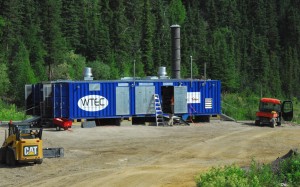


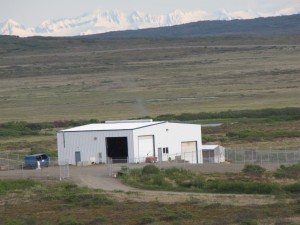
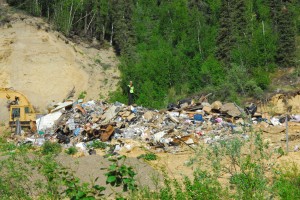
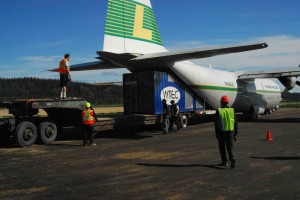
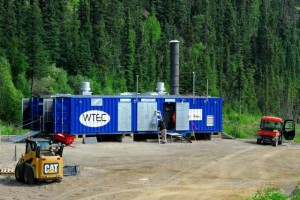
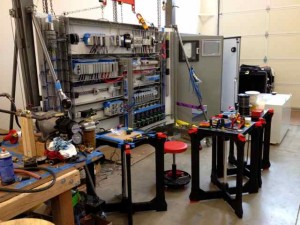
 06 February 2012
06 February 2012
